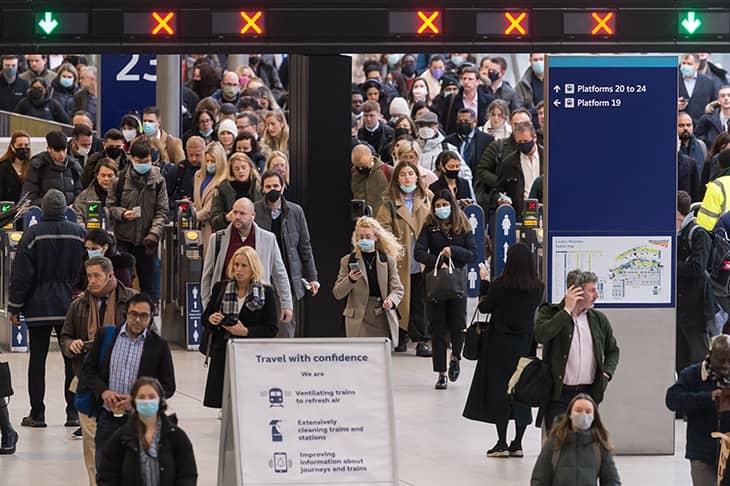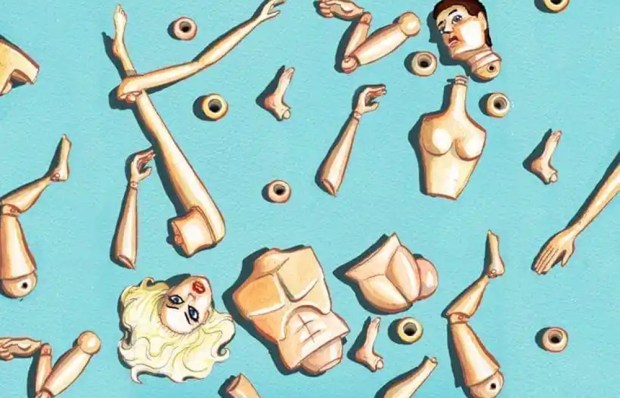Shortly after Covid emerged, our civil liberties were suspended. The government took control of when and for how long we could leave our houses, and children’s right to classroom education was abolished. The idea was that lockdown would prevent catastrophic loss of life and the collapse of the NHS. But when that was no longer a serious prospect, the justification for restrictions vanished. The big question was whether governments would hold on to the emergency powers anyway — with identity cards, testing regimes and ‘no-jab, no-job’ policies.
In Britain, the answer is — thankfully — now clear. We have become, along with Denmark, the first country to draw a line underneath the pandemic and return government to its proper relationship with the public. In abolishing all domestic restrictions, including the law obliging those with Covid to self-isolate, Boris Johnson has made a bold and brave decision. After two years and some calamitous missteps, he now looks to have found his feet.
Many say this decision is reckless or premature, but that is to ignore what the Prime Minister said in his press conference this week — and to underestimate the public’s good sense. He did not tell anyone to behave in a carefree manner, just acknowledged that we are now trusted to take personal responsibility. Johnson’s critics seem un-able to grasp this concept. They assume that people only change their behaviour when ordered to by state decree, but, like Sage’s models, that has proven untrue.
At the start of the pandemic in March 2020, people limited their social contacts of their own volition. By the time the first lockdown was imposed, public transport journeys in London, for example, were already down to 15 per cent of their normal levels. By putting the epidemiologists in charge in 2020, Johnson took his attention away from the knock-on issues that followed the state-mandated lockdown. That narrow focus has led to various nasty surprises that should have been anticipated.
Longer NHS waiting lists, labour crunches, school grade inflation, the hit to social mobility: these would have happened anyway without restrictions. But the early indications are that lockdown exacerbated each of these problems. This is why it is so important that the remaining Covid restrictions are abolished now: it is hard to tell their exact effect on — for example — the economy, consumer confidence or basic healthcare. And why risk undermining these? Now that the original rationale for the restrictions has vanished, the restrictions should vanish too.
Johnson’s performance on Covid has been much better in recent months. He rejected the case for a fourth lockdown in December at a time when some advisers, ignoring all the evidence from South Africa that omicron was milder, pressed for Christmas to be cancelled once again. They were mistaken; he and his cabinet were proven right. As we have repeatedly argued, it makes sense for him to capitalise on this decision.
The Prime Minister could have gone even further this week. Is there really any point in continuing with passenger locator forms and tests for unvaccinated foreign travellers? Why should Britain not also lead the world in ending any form of vaccine-based discrimination?
We should also stop the endless spending. One of the most important aspects of this week’s recovery plan is that it did not involve any more borrowing. The Treasury refused the Department of Health’s request for another £5 billion to fund free Covid tests. The era of heaping ever more debt upon the public at every stage of the pandemic may have ended.
The foolish idea that public debt no longer matters has been blasted apart by the soaring cost of servicing government debt. In March last year, the Chancellor told us that the government would spend £42 billion on debt interest this financial year. By October, however, the cost of servicing index-linked bonds had driven this up to £58 billion. Now, according to the recent estimates, it looks like it will come out at £69 billion.
Never mind funding a catch-up in NHS operations — the £12 billion extra revenue which the government hopes to raise in higher National Insurance contributions will not even cover the rising cost of debt. This is the context under which ‘free’ lateral flow tests are coming to an end on 1 April. There is nothing free about them: they cost tax-payers £2 billion in January alone.
Perhaps the biggest challenge now lies in persuading our institutions and health service to return to normal. Various universities, including Leeds and Durham, have still not resumed normal teaching, insisting on ‘blended learning’ instead. The government should follow the example of Durham University’s largest individual donor, Mark Hillery, who recently withdrew funding in protest at its failure to reinstate face-to-face teaching. If universities will not restore the tuition students signed up for, then their fees should be refunded, in part or in whole. If GPs refuse to give appointments to patients who want to be seen in person, then funding should be switched to surgeries and clinics that will.
The government is not without blame. For two years it pursued a policy of trying to scare the public and ignored the full impact of its restrictions. The rest of Johnson’s premiership must be spent trying to repair the damage inflicted by his lockdowns. This week may not mark the end of the pandemic. But it should mark the end of living in fear — and the end of an unpleasant experiment in authoritarian government.
Got something to add? Join the discussion and comment below.
Get 10 issues for just $10
Subscribe to The Spectator Australia today for the next 10 magazine issues, plus full online access, for just $10.
You might disagree with half of it, but you’ll enjoy reading all of it. Try your first month for free, then just $2 a week for the remainder of your first year.














Comments
Don't miss out
Join the conversation with other Spectator Australia readers. Subscribe to leave a comment.
SUBSCRIBEAlready a subscriber? Log in